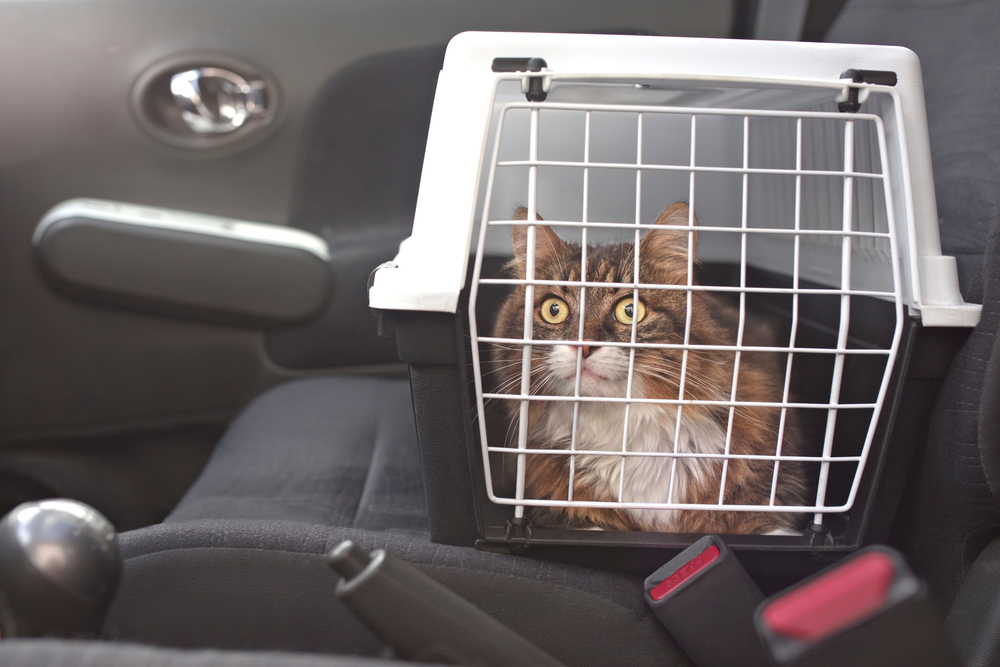As your family gathers for the holiday, several common Thanksgiving delectables and decorations can be hazardous for your pet. Our team at Caldwell Animal Hospital wants to explain reasons why your pet could be in danger on turkey day.
#1: Several savory treats are hazardous for your pet
Pets have sensitive gastrointestinal tracts, and any sudden change in their diet can cause issues such as vomiting or diarrhea. The high fat foods typically served on Thanksgiving are especially dangerous for your pet, because they can trigger pancreatitis, a potentially life-threatening condition. Other hazardous foods include:
- The bird — The turkey poses several risks for your pet. The skin is high in fat, which is a pancreatitis risk, and the bones are brittle and can easily splinter, injuring your pet’s mouth, esophagus, and intestines. In addition, your pet could be at risk for salmonellosis, if they eat an undercooked piece of meat.
- The sides — All members of the Allium family, including onions, chives, leeks, and garlic, contain thiosulphates, which are toxic to pets. The toxins cause damage to your pet’s red blood cells, resulting in anemia. Signs include lethargy, vomiting, diarrhea, pale mucous membranes, and bloody urine.
- The drink — Pets are especially sensitive to alcohol, and ingestion can cause their blood pressure, body temperature, and blood sugar to dangerously drop. Respiratory failure and seizures can occur in severe cases.
#2: Several sweet treats are hazardous for your pet
Many treats found on the dessert table can cause problems for your pet.
- Chocolate — Chocolate contains the toxins theobromine and caffeine, which stimulate your pet’s central nervous system, and cause increased circulating epinephrine levels. Signs include vomiting, diarrhea, and restlessness.
- Xylitol — This artificial sweetener, commonly used in diabetic-friendly desserts, causes a sudden insulin release in pets that results in profound hypoglycemia. Signs include incoordination, weakness, and seizures.
- Nutmeg — This spice, commonly used to make pumpkin pie, contains myristicin, which causes disorientation, abdominal pain, and seizures in pets.
#3: Several decorative plants and flowers are hazardous for your pet
When decorating your home, ensure the plants and floral arrangements you choose are pet friendly. Plants and flowers to avoid include:
- Lilies — Cats are especially sensitive to lilies, and can be affected by every part of the plant, including the water in the vase. They can develop acute, life-threatening kidney failure.
- Autumn crocuses — These plants contain colchicine, which is toxic to pets, and causes gastrointestinal bleeding, vomiting, respiratory failure, and liver and kidney failure.
- Hydrangeas — These plants contain amygdalin, which is toxic to pets, causing lethargy, vomiting, diarrhea, and confusion.
#4: Certain Thanksgiving decor can be hazardous for your pet
Pets are always interested in new additions to their environment, and they will likely investigate your decorations. Decorations that can cause problems include:
- Candles — Lit candles can burn your unsuspecting pet, and can cause a fire if they are inadvertently knocked over.
- Potpourri — You may want to freshen up your home’s scent, but potpourri contains herbs and oils that can be toxic for your pet.
#5: The festivities could stress your pet
Hosting multiple people in your home can be stressful for your pet. If they become anxious and upset, they are more likely to escape through an unguarded door. Ensure your pet is wearing a collar and identification tags with your current contact information, in case they sneak away when you are distracted. Microchipping your pet is recommended as the best way for them to be safely returned to you, should they get lost. Other steps to keep them safe at home include:
- Create a quiet room — Keep your pet in a quiet room during the feast, to ensure they don’t get stressed and try to escape. You can leave on the television or play music, to muffle noises from the festivities. Offer a food-puzzle toy to help distract their attention from the change in routine.
- Notify your guests — Ensure your guests are aware that your pet is not supposed to go outside. Place signs on your doors to remind yourself and your guests to be on the lookout for your sneaky pet.
#6: Traveling with your pet can be dangerous

You should take certain precautions, if you are traveling with your pet for Thanksgiving.
- On the road — Ensure your pet is restrained appropriately in the vehicle while you are driving. Larger pets can be restrained using an appropriately sized harness, while smaller pets should be kept in a carrier away from an airbag. Never leave your pet alone in a parked vehicle, because they could quickly become overheated. Also, ensure your pet has adequate ventilation if they are traveling in the back of your vehicle.
- In the air — Only fly with your pet if they can ride in the plane’s cabin. Traveling in the cargo hold is dangerous for pets, because the temperature is not controlled, and containers can shift, causing injury.
You can enjoy your Thanksgiving festivities, and keep your pet safe, with only a few precautions. However, if your pet experiences a holiday mishap, contact our team at Caldwell Animal Hospital, so we can help them get back to being thankful.







Leave A Comment